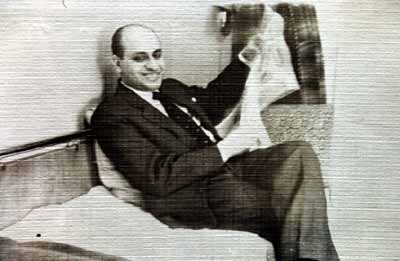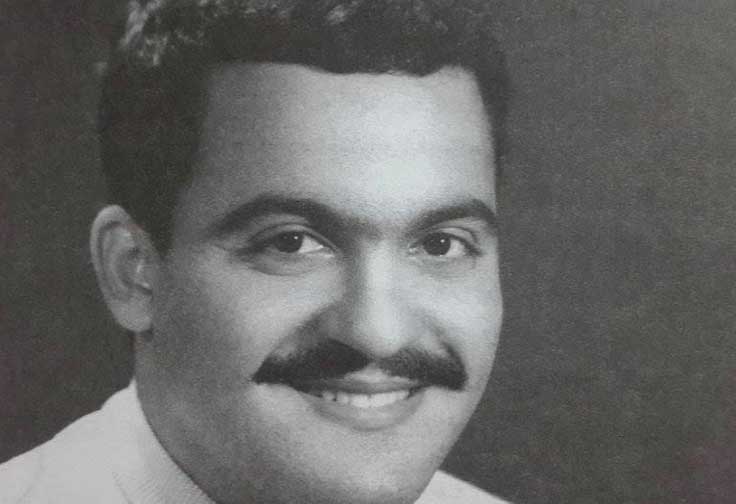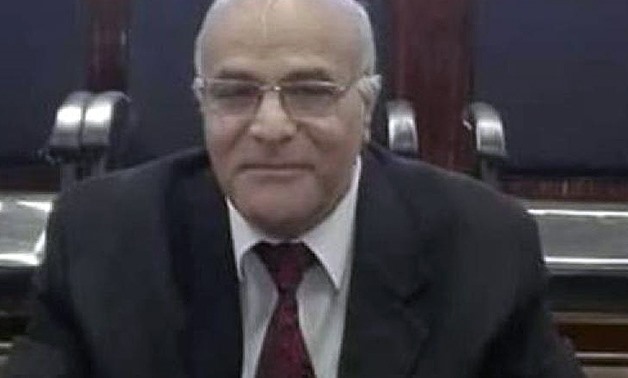Moussa sat in the backseat as they left the city and headed along the California coast. She had completed her research and was preparing to return to Egypt, but she had received an invitation for a dinner. Driving along the curved cliffs of the Pacific Coast, the car suddenly swerved and plummeted 40 feet over the edge, killing her immediately. The driver jumped from the car just before the fall and later disappeared, and the invitation she received to California turned out to be fake. The death of the brilliant young physicist is shrouded in mystery. While no one knows for sure what happened, some suspect that was targeted by Mossad, Israel’s intelligence agency, to prevent Egypt from acquiring knowledge of nuclear technology – though it has never claimed responsibility.
This was hardly the last time that nuclear and other weapons scientists met an unfortunate end. On June 13, 1980, Yahya al-Meshad, an important Egyptian-born physicist, who was in charge of Iraq’s nuclear program, arrived in France to test fuel for the reactor. The morning he was to return home a maid entered his Paris hotel room and found that he had been stabbed multiple times and bludgeoned to death. The last person known to have seen the scientist the previous night, a prostitute who called herself Marie Express, was killed a few weeks later by a speeding car, not long after her preliminary statement. The car and culprit were never found. Over the next several months two more Iraqi nuclear scientists died under mysterious circumstances while outside the country in separate poisoning incidents. Again, although it was not determined who was responsible, some people accused Mossad.

In another incident on July 14, 1989, Said Bedair, an Egyptian microwave scientist, fell to his death from a balcony in Alexandria, Egypt. Just one month before he died, Bedair had left his research position at a West German university. Before his return to Egypt, he told colleagues of fears that he was under surveillance and reported that his apartment had been searched and documents and computer files were taken. The initial Egyptian police report listed his death as suicide by asphyxiation and slashing of the wrists, and from the fall. His family disputed the findings. Bedair was an internationally recognized scientist and had spent years researching microwave circuitry. The field has application in development of satellite technology and missile guidance systems.

The most recent of the string of deaths of Egyptian scientists met suspicion and accusations happened earlier this month. Abu Bakr Ramadan, the former head of the Network of Radiological Monitoring, a section of the national radiology watchdog, Egyptian Nuclear and Radiological Regulatory Authority, was assigned by the International Atomic Energy Agency (IAEA) in 2015 to help assess environmental effects of nuclear plants in Bushehr, Iran, and Dimona, Israel, Egyptian media reported. In January this year, he participated with an Egyptian-IAEA team assessing the environmental effects of a multibillion-dollar nuclear power plant to be built in north-western Egypt in cooperation with Russia. His nephew, Mohamed Gamal, said his uncle had never talked to the family about his work. “He considered his work a strictly personal affair,” said Gamal.
He travelled to Marrakesh, Morocco, in early September for a workshop on pollution trends in coastal areas. On September 6, on the final day of the conference, it was reported that he said he felt tired and went to his hotel room to get medication. A hotel worker later found Ramadan lying on the floor. An ambulance was called but Ramadan, 61, was declared dead before reaching the hospital. An initial report by the hospital said Ramadan died of a heart attack but claims have circulated suggesting that he might have died of poisoning, suspecting once again that foreign agencies are plotting to covet Egypt’s research efforts. “Enemy states have their eyes fixed on Egypt’s scientists abroad,” said Khaled Abu Taleb, a member of the Defence and National Security Committee in parliament. “History is full of examples of scientists murdered outside Egypt.” Abu Taleb asked the Egyptian government to send a team of investigators to participate in the inquiry into Ramadan’s death. He called for protecting Egyptian scientists who travel to other countries.

Egypt has been trying to develop its own peaceful nuclear program since the 1950s. It had its first nuclear reactor, for research purposes, in 1954. In the late 1950s Egypt launched a ballistic-missile program with the help of German scientists, formerly employed in Nazi Germany’s rocket program. In July of 1962 President Gamal Abdel Nasser unveiled two new test missiles at a military parade, bragging that they could hit targets "south of Beirut." Once news reached Mossad, there was “an atmosphere of near panic,” according to a Mossad internal report. They quickly responded with Operation Damocles, an intimidation campaign targeting the German scientists. One scientist was killed in September, two months after the parade, and in the following months the scientists' families were threatened directly. In November several letter bombs addressed to the scientists were sent to the rocket facilities in Egypt; one of them killed five Egyptians. Soon all the German scientists had left Egypt and without them, the program withered. In March 1963, Israeli Prime Minister David Ben-Gurion demanded the resignation of then chief of Mossad, Isser Harel, over the operation, which effectively ended it.
The Egyptian nuclear program recently restarted with the construction of the nuclear power plant in Dabaa. The plant is to include four reactors, each with the capacity to generate 1,200 megawatts of electricity. The first reactor is scheduled to start operating in 2026.
The plant is to be constructed over 45 sq.km and cost $28.8 billion. Russia will contribute $25 billion in a loan to be repaid by Egypt over 13 years at an interest rate of 3%. A year after the operation of its first phase in 2026, the plant will contribute 10% of all electricity in Egypt. By 2050, it will provide 30% of the country’s electricity.







